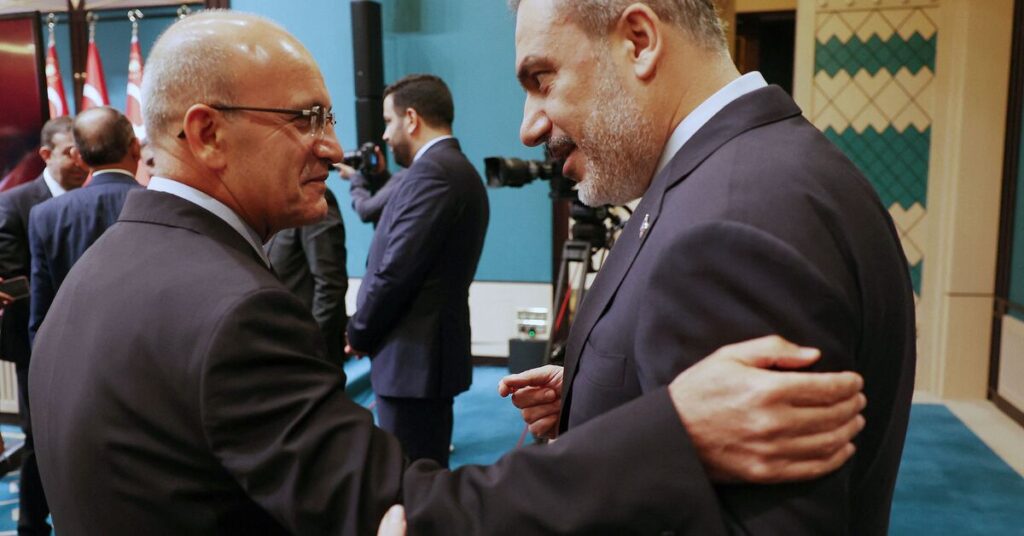Turkey on Monday unveiled a three-year austerity plan to cut public spending to curb inflation, which hit about 70 percent year-on-year in April and is expected to peak this month.
Announcing the plan in Ankara, Finance Minister Mehmet Simsek said the wide-ranging plan included budget cuts “across public services”, some of which would require legislative changes to be submitted to parliament.
“Our priority is to combat the rising cost of living. Low single-digit inflation is essential for sustainable growth,” he added.
“Directing investment towards productive sectors will be crucial to the success of this plan. We will accelerate structural reforms and bring about major changes in public finances.”
The government announced restrictions on hiring and transportation spending for civil servants, including a three-year ban on the purchase or rental of any official vehicles. The only exceptions to this rule are when vehicles are purchased for “essential requirements” related to the health, security and defense sectors.
Simsek did not specify the government’s policy on civil servant salaries, but said the number of new recruits would match the number of retirees.
The new measures are expected to cut public spending by 100 billion lira ($3.1 billion), with funds allocated to government agencies to purchase goods and services slashed by 10 percent and for investment by 15 percent.
Simsek added that civil servants will no longer use imported cars, and there will be a three-year moratorium on the construction and purchase of public facilities, except for those built to reduce earthquake risks or those affected by natural disasters.
The minister said the fiscal policy aims to “improve the efficiency of the public sector” and save resources by implementing cost-cutting measures in the areas of employment, energy, waste management and communications.
Simsek was appointed economy minister in June 2023 after Turkish President Recep Tayyip Erdogan was re-elected last year. The former Merrill Lynch economist was tasked with attracting foreign direct investment back to Turkey amid high inflation and a severe cost-of-living crisis.
Turkey’s annual inflation rate is expected to reach 69.8% in April and peak at around 75-76% in May before falling to 38% by the end of the year, according to the Central Bank’s latest forecast.
Erdogan was known for ignoring economic orthodoxy by keeping interest rates stubbornly low despite high inflation. Simsek reversed that policy since becoming finance minister last year, raising interest rates by 41.5% to rein in inflation.
Amid this economic upturn, international investor interest and engagement in Turkey has also increased.


